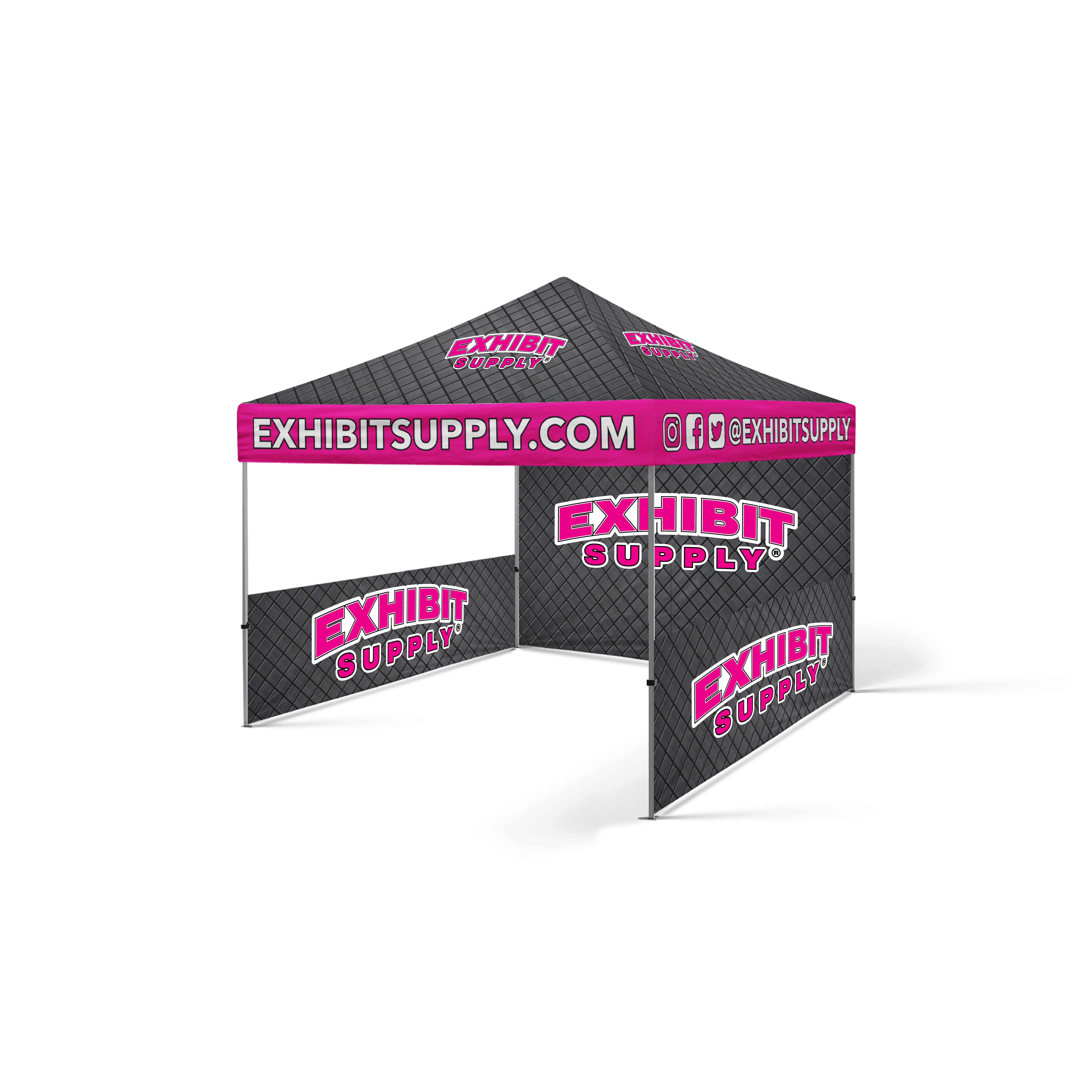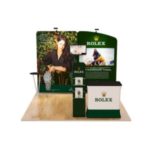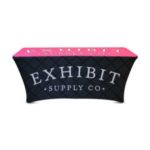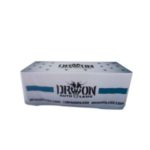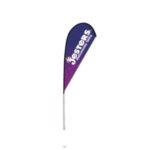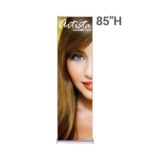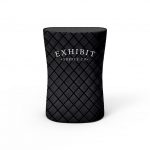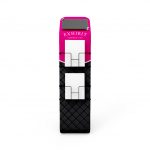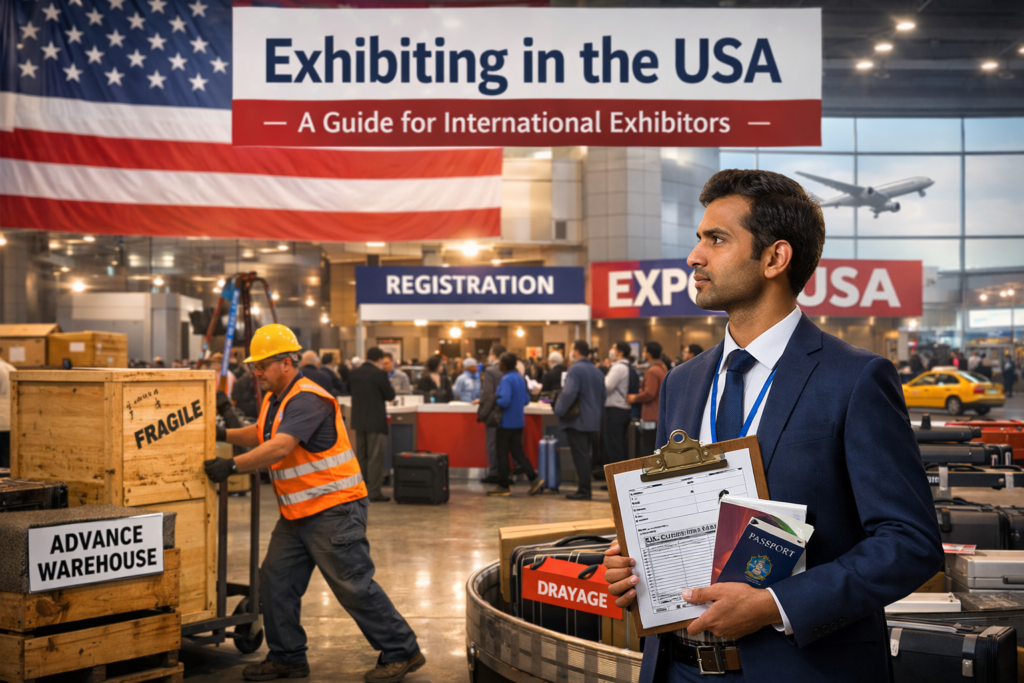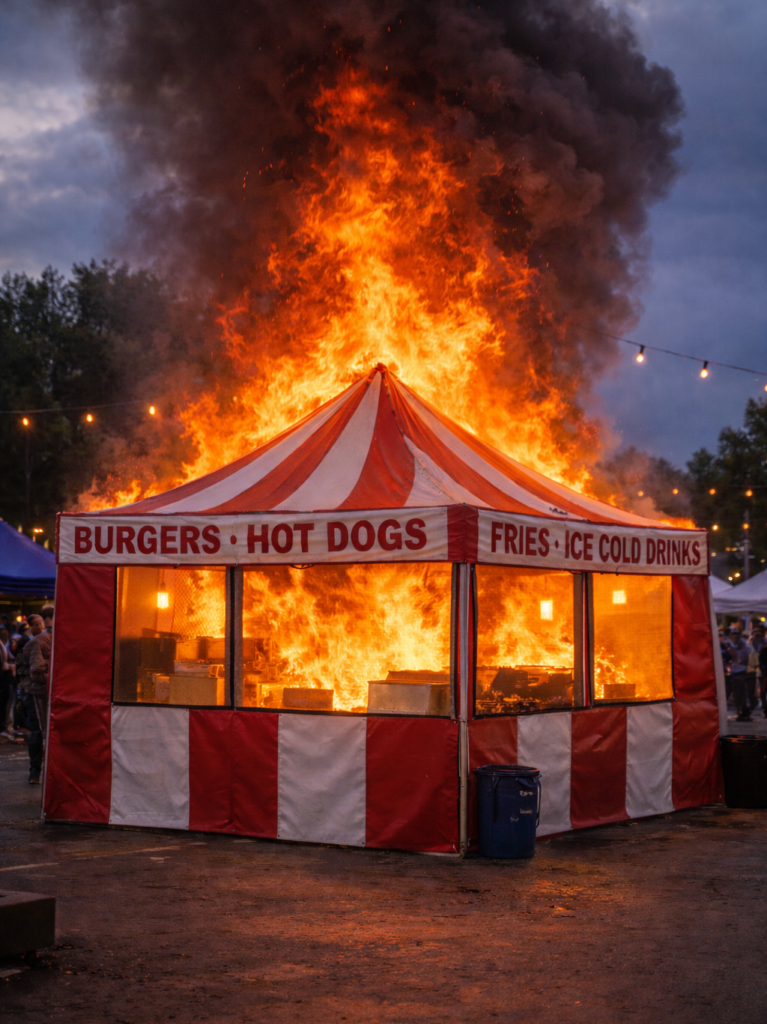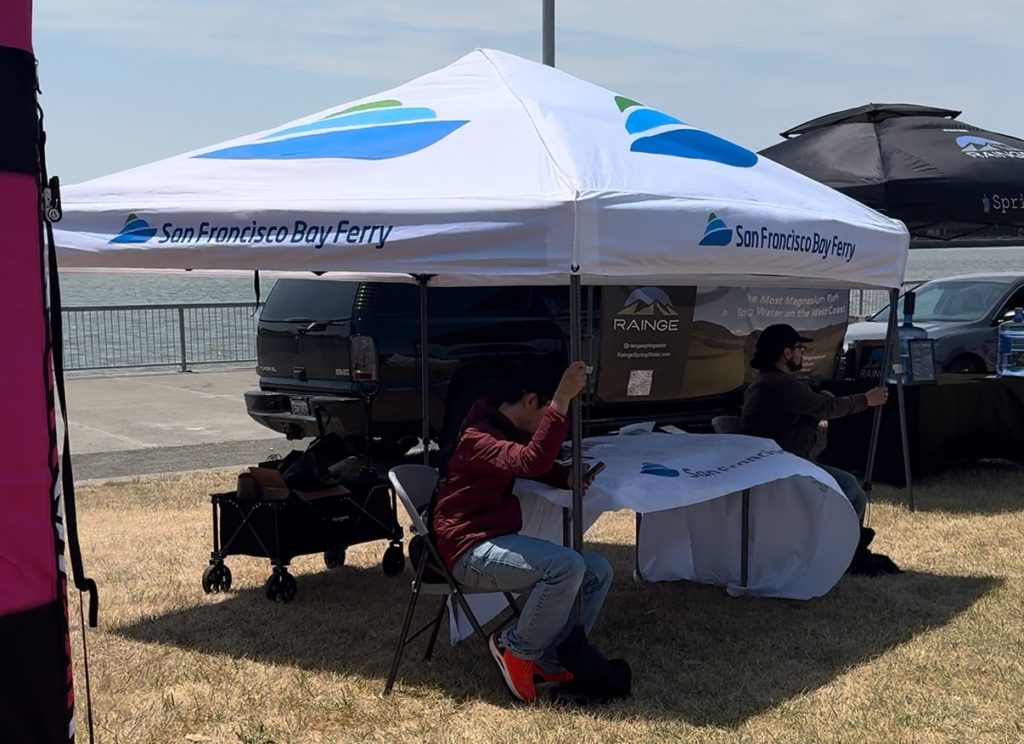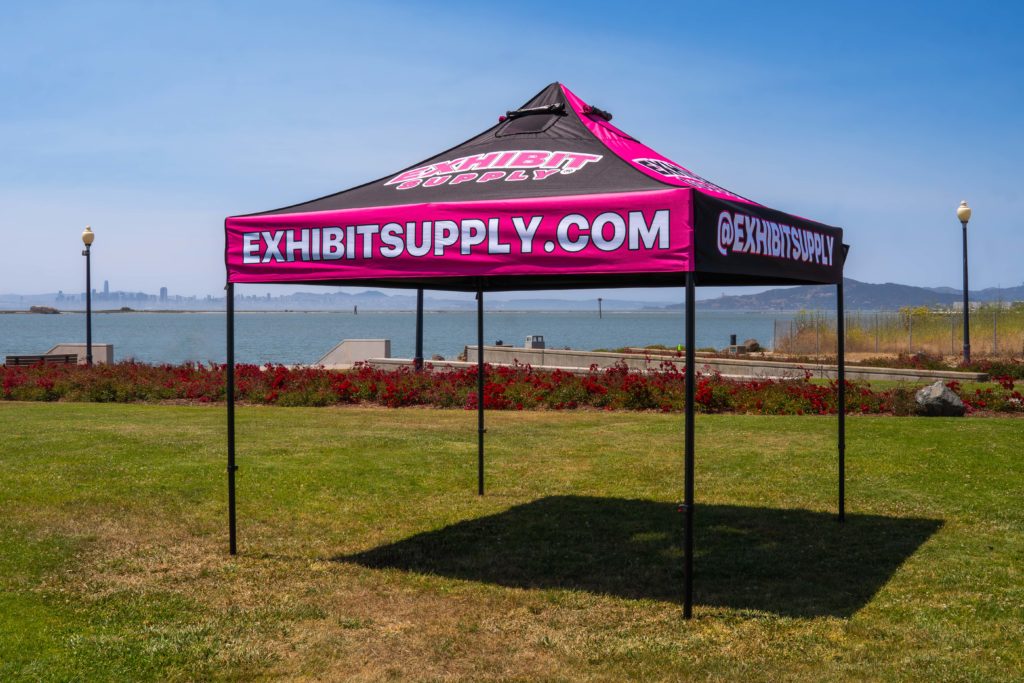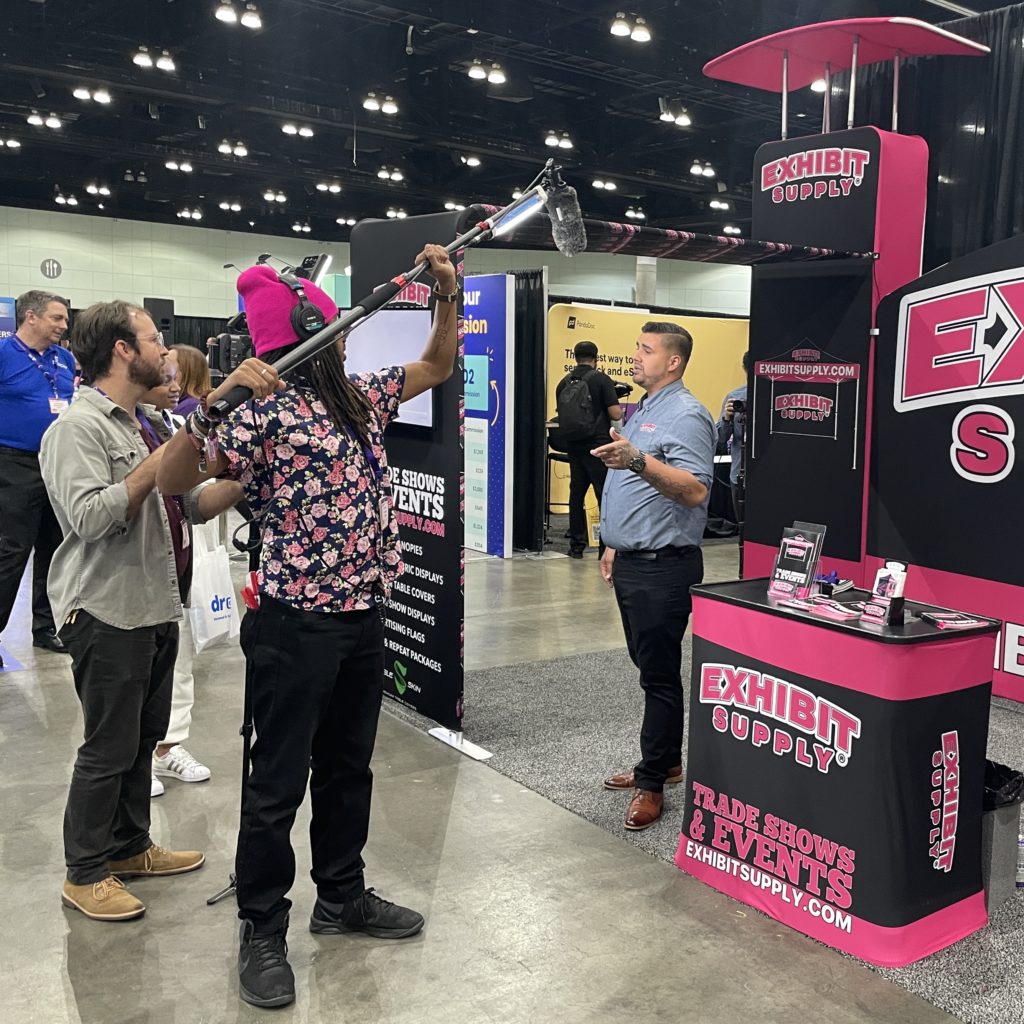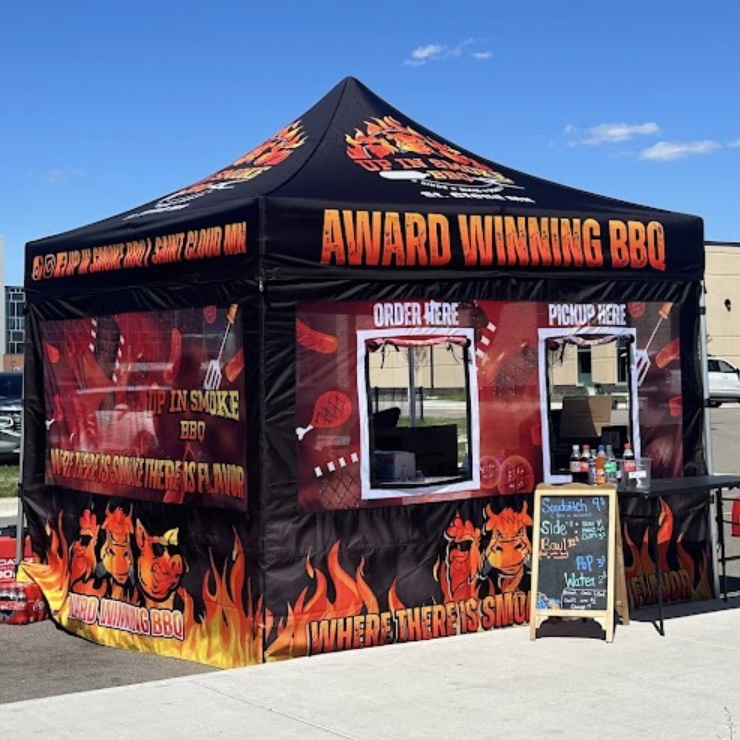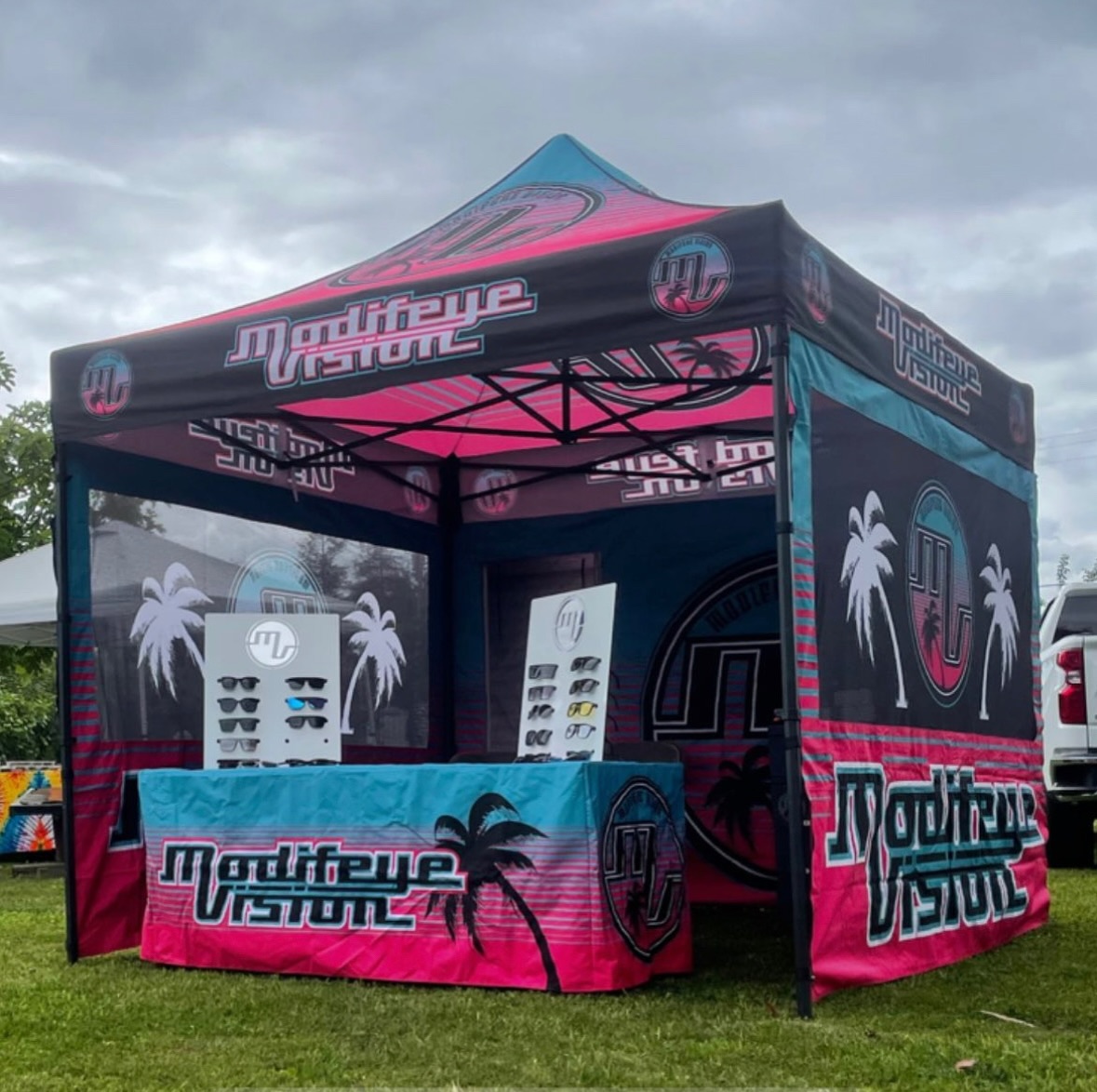Setting up canopies at outdoor events, trade shows, or indoor exhibitions is essential for many business owners, especially vendors who rely on eye-catching displays to attract customers. However, fire safety regulations for canopies are crucial in both outdoor and indoor settings, and these standards vary by state and venue. Fire safety standards like NFPA 701 and CPAI 84 play a critical role in certifying canopy materials for fire resistance. In this article, we’ll delve into fire safety requirements, state-specific variations, and key considerations to ensure your canopy meets all necessary certifications, avoiding costly issues at events.
Understanding NFPA 701 and CPAI 84: Industry Standards for Fire Resistance
The two primary fire safety standards in the U.S. for canopies, tents, and similar fabric structures are NFPA 701 and CPAI 84. Both tests evaluate how materials react to fire exposure, but each has its unique protocols:
- NFPA 701 (National Fire Protection Association Standard) is widely recognized across the U.S. for assessing flame propagation in textiles. Fabrics used in public spaces, especially indoors, must pass this test to prevent rapid fire spread.
- CPAI 84 (Canvas Products Association International Standard) focuses on fire resistance specifically for tents and camping equipment. CPAI 84 is primarily used for outdoor canopies and emphasizes testing fabrics for performance under conditions common in outdoor environments.
Most event venues require either or both of these certifications, especially indoors. Vendors should prioritize canopies certified under these standards to avoid last-minute issues with fire marshals or venue managers.
State-Specific Requirements: Examples of Differences Across the U.S.
Fire safety standards for canopies are enforced at both national and state levels, but each state may interpret these requirements differently. Below are examples of state-specific regulations that impact vendors and exhibitors:
- California: California’s regulations are among the strictest. Canopies used at events must carry a valid fire certificate from an independent testing laboratory, and these certificates must be renewed annually. The certification label must be affixed visibly to the canopy so it’s easy for fire marshals to check. California’s regulations also require that canopies be registered with the California State Fire Marshal’s office, which maintains a database of fire-tested materials and canopy manufacturers.
- New York: In New York, regulations for canopy fire safety are more specific for indoor events, where most canopies must pass NFPA 701 testing. Outdoor events often require CPAI 84 compliance, and additional restrictions apply to canopies used near food equipment or cooking areas, where open flames might be present.
- Florida: Florida follows standards similar to California’s, particularly for indoor events. Outdoor events may allow canopies without fire certificates, depending on the county, but vendors are generally encouraged to use NFPA 701-compliant materials. Many large-scale event venues require fire certification for canopies as a preventative measure, especially in high-density locations.
Understanding state-specific regulations is essential. Vendors should check with local fire authorities before attending events, as requirements may change.
Fire Safety Requirements for Indoor vs. Outdoor Events
The distinction between indoor and outdoor canopy use is essential because fire risk varies. Indoors, canopies must be certified for fire resistance, with certificates on hand or displayed on the canopy itself. In many states, venues require a certificate from a recognized testing company, and some venues prohibit canopies entirely if their fire suppression systems can’t accommodate temporary structures.
In outdoor settings, canopies used for food and cooking often require certification due to increased fire risk. For example, food vendors at fairs and festivals must ensure that their canopies meet local fire standards, including those set by the NFPA or CPAI. These certifications help prevent fires in cases where cooking oils, stoves, and other potentially hazardous equipment are nearby.
How Fire Testing Works: The Role of Independent Testing Labs
Fire testing involves rigorous processes to ensure that fabrics used in canopies and tents won’t ignite easily or sustain a flame. Here’s an overview of how this process works:
- Testing Procedure: Independent, certified testing companies carry out NFPA 701 and CPAI 84 tests in a controlled environment. The fabrics are exposed to flame, and testers measure flame spread, smoke production, and the material’s ability to self-extinguish. The testing process also involves durability assessments, as fire resistance may weaken over time.
- Certification and Renewal: After testing, successful fabrics receive a fire certificate from the testing lab. In California, vendors must register this certification with the State Fire Marshal, which stores records of all certified materials. This certificate must be renewed annually to ensure continued compliance, especially if the canopy is reused.
Displaying Fire Certificates on Your Canopy
Certain states, like California, mandate that fire certificates must be prominently displayed on canopies. For example, California requires canopies to have fire certificates affixed to a visible area, such as near the entrance or on the roof section of the structure, making it easy for fire marshals and inspectors to verify compliance. Vendors should ensure that fire labels and certificates are securely attached and updated annually.
Why Food Vendors Should Prioritize Fire-Resistant Canopies
Food vendors face unique fire safety challenges due to the use of cooking equipment and open flames. Fire certificates are essential for canopies in these environments, even at outdoor events, as they demonstrate that the structure won’t contribute to rapid fire spread. Vendors should work with canopy providers who understand the specific requirements for food-related operations, ensuring their products meet or exceed fire safety standards.
The Importance of Verifying Fire Certifications Before Purchasing a Canopy
Choosing a reputable canopy provider is crucial for meeting fire safety standards. Unfortunately, some companies—often based overseas—claim their canopies are NFPA 701 or CPAI 84 certified without proper testing. Vendors should exercise caution when purchasing canopies and verify that the fire certificate is legitimate. Here’s what to look out for:
- Avoid Misleading Claims: Canopies from certain countries, such as China, sometimes undergo testing that doesn’t meet U.S. or global standards. This can lead to false claims about fire resistance, even when products are labeled “fire retardant.” Many of these products lack the certification required to pass NFPA 701 or CPAI 84, putting vendors at risk of not being able to use their tent at events.
- Request Documentation: Vendors should request the official fire certificate from the canopy provider and confirm the testing lab’s credentials. Reputable companies work with accredited testing labs and have up-to-date certifications that meet U.S. standards. If a vendor can’t produce this documentation, it’s a red flag that the canopy may not be compliant.
- Inspect for Labels: Certified canopies often include a label indicating the test standard (NFPA 701 or CPAI 84) and the testing lab’s information. Vendors should check for this label before purchasing to ensure they’re buying a compliant product.
Consequences of Non-Compliant Canopies at Events
Investing in a certified, fire-compliant canopy ensures peace of mind and helps avoid costly mistakes. Without a legitimate fire certificate, vendors face several risks:
- Event Restrictions: In many states and venues, non-compliant canopies can’t be set up, which could lead to lost revenue for vendors who have invested significantly in their booth space and setup.
- Legal Fines: Setting up a non-certified canopy may result in fines, and vendors may face additional penalties for failing to meet local fire codes.
- Liability Risks: Should a fire occur, vendors without compliant canopies may be held liable, leading to potential lawsuits and damage to their business reputation.
Conclusion
Understanding and adhering to fire safety standards is essential for vendors who rely on canopies for their business at events. From NFPA 701 and CPAI 84 standards to state-specific regulations, fire safety certifications ensure your canopy won’t just pass inspection but also protect you, your business, and attendees in case of a fire emergency. Take the time to verify fire certification claims, understand state requirements, and always work with reputable canopy suppliers to avoid complications and enjoy a successful event season.
By following these guidelines and staying informed, vendors can confidently invest in high-quality, certified canopies that meet fire safety standards, avoiding the risk of non-compliance while ensuring a safe and successful presence at events.


